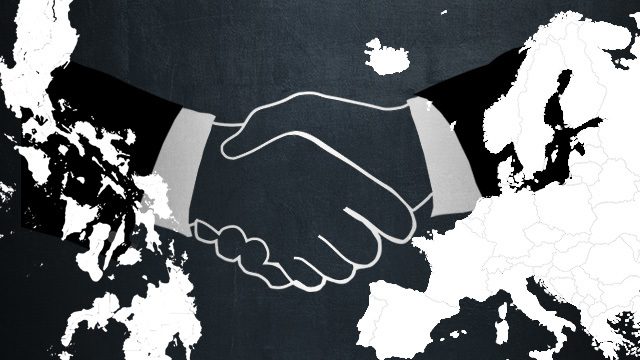SUMMARY
This is AI generated summarization, which may have errors. For context, always refer to the full article.

MANILA, Philippines – Malacañang announced on Saturday, January 20, that the Philippines has retained its Generalized Scheme of Preferences Plus (GSP+) status under the European Union (EU), which provides duty-free entry for 6,200 products from the Philippines.
“The European Union’s Generalized Scheme of Preferences Plus stays. So far, there is no move from the EU to remove it,” Presidential Spokesperson Harry Roque said in a press conference in Kalibo, Aklan, on Saturday.
He added the report, which is done by the EU annually to assess conditions in beneficiary countries, noted that the Philippines made progress in the areas of labor rights, environmental protection, and climate change, and good governance.
Philippine officials had anticipated the positive development amid concerns that the country would lose the major trade incentive because of the EU’s concerns about the human rights situation in the Philippines under President Rodrigo Duterte.
‘Serious concerns’ in human rights
In its country report on the Philippines, the EU noted “serious concerns” with regard to the human rights situation.
“Extrajudicial killings and the impunity for those responsible, as well as the possible reintroduction of the death penalty and the lowering of the age of criminal responsibility are issues of serious concern for the EU,” it said.
Last year, the House of Representatives approved a bill seeking to reimpose the death penalty, but its counterpart bill in the Senate was deemed as “good as dead.”
Discussions on the lowering of the age of criminal responsibility to 9 years old from 15 years old also took in the House, with lawmakers retaining criminal liability to individuals at least 15 years of age.
The EU said the issues had been raised with Philippine officials on numerous occasions and that there would be frank dialogue in this area.
“These severe problems have been raised on numerous occasions. In the coming months, the EU will pursue a frank dialogue and increased pressure in that respect,” the report said.
The EU had earlier raised concern over the spate of killings related to the drug war of President Rodrigo Duterte, which drew public admonition – and a couple of dirty finger signs in public speeches – from the Philippine leader from the early months of his term through most of 2017.
Behind the scenes, however, Philippine officials scrambled to mend ties with the EU. Duterte even appointed former Senate president Edgardo Angara as Philippine Special Envoy to the EU as part of the apparent damage control.
No interference
Meanwhile, Roque stressed that the report is an assessment done by the EU to ensure country beneficiaries are democratic and since the assessment is comprised of observations, the EU is not meddling with the internal affairs of the Philippines.
“This report, we have to underscore, is an assessment the EU does on a regular basis. It is their observations. They are not interfering with our domestic policies or asking us to change,” Roque said.
He added, “The report notes that we are vibrant democracy and we have been signatories to the conventions such as labor, human rights, environment among others; even before the GSP+.”
In this area, the EU’s report also noted progress in gender equality, people trafficking, health, education, social-economic rights, the fight against corruption, and protection of the environment.
Roque also said trade relations with the EU reached a milestone as Philippine exports to the EU grew by 31% or $8.4 billion in 2017, making EU the country’s 3rd largest trading partner. (READ: FAST FACTS: How important is the EU to the Philippines?)
According to the EU’s GSP fact sheet, a GSP+ monitoring mission to the Philippines, took place from January 26, 2017 to February 2, 2017.
The EU’s GSP is a unilateral privilege granted to select countries. Other countries with GSP+ status include Armenia, Bolivia, Cabo Verde, Georgia, Kyrgyzstan, Mongolia, Pakistan, Paraguay, and Sri Lanka.
The report notes areas of progress and challenges for each beneficiary country with regard to its implementation of the 27 GSP+ relevant international conventions on human rights, labour rights, good governance, and environmental protection. – Rappler.com
Add a comment
How does this make you feel?
There are no comments yet. Add your comment to start the conversation.